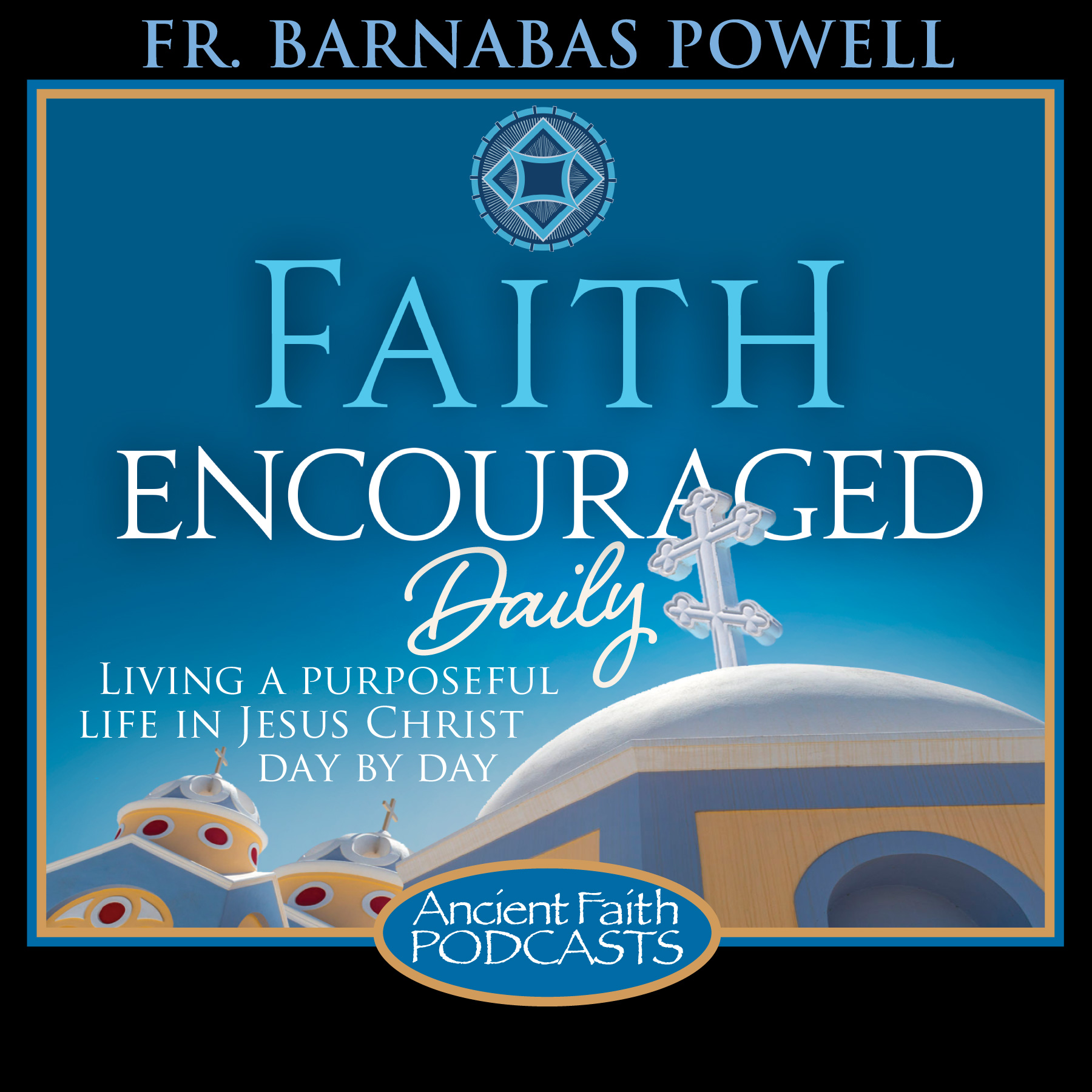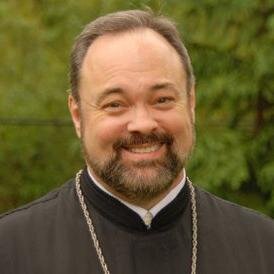What’s the difference in rule-keeping and wisdom? Turns out, this distinction is the most important change of mind we humans have to face if we’re ever going to be able to embrace the message of the Orthodox Christian faith. As a former police officer, I remember well having to memorize the rules of the road so that I could enforce the rules. Of course, all these laws were on the books for people’s safety, but I can’t tell you how tempting it was to reduce that central purpose to the mere enforcing of the rules as a purpose unto itself. You can always tell the difference between an officer who gets the spirit of the laws and the one who only sees the letter of the law.
We live in a society, a so-called modern society, where it seems the avoidance of consequences is considered the greatest good. And I understand that. I love to eat galaktoboureko. Look it up and get the recipe. It’s absolutely wonderful. I’d love to eat that every day, but the consequences for my health and the consequences for those around me, including my wife and children especially, would be bad, so I have to make the choice to have this delicious treat only once in a while. But life is full of small and big choices just like that.
But our society today considers any suggestion like this to be “judgmental.” When you hear somebody say things like, “Don’t judge me,” usually what it really means is: “Hey, I don’t like feeling bad when my poor choices are revealed, so stop doing that.” [Laughter] In today’s gospel lesson, our Lord Jesus and his disciples shine an uncomfortable light onto the spiritual poverty of reducing our relationship to God to mere rule-keeping. The disciples are hungry and it’s the sabbath and no work is supposed to be done on the sabbath, but as the disciples are walking through a grain field they pick some of the grain and eat it. Look at Mark 2:23-28, 3:1-5. This is what it says:
At that time, Jesus was going through the grain fields, and as they made their way his disciples began to pluck heads of grain, and the pharisees said to him, “Look, why are they doing what is not lawful on the sabbath?” And he said to them, “Have you never read what David did when he was in need and was hungry, he and those who were with him, how they entered the house of God where Abiathar was high priest, and ate the bread of the presence, which is not lawful for any but the priest to eat, and also gave it to those who were with him?” And he said to them, “The sabbath was made for man, not man for the sabbath. So the Son of man is Lord, even of the sabbath.”
Again he entered the synagogue, and a man was there who had a withered hand, and they watched him to see whether he would heal him on the sabbath so that they might accuse him. And he said to the man who had the withered hand, “Come here,” and he said to them, “Is it lawful on the sabbath to do good or to do harm? To save life or to kill?” But they were silent. And he looked around at them with anger, grieved at the hardness of their heart, and said to the man, “Stretch it out,” and his hand was restored.
The Lord is confronted by the reality of pious leaders who rebuke the Lord for allowing his disciples to break the rules of the sabbath. And the way the Lord deals with this instructs us in how to deal with our own spiritual growth and our own spiritual maturity. These religious leaders were furious when the Lord refused to be captured by their reduction of the life of faith to mere rule-keeping, and they are very upset that their own spiritual smallness is exposed to everyone around them. So the Lord lovingly attempted to correct their poverty and misapplication of the wisdom of God by making two very important distinctions about the wisdom of God that he has given to humanity.
The first distinction is this: The rules were made for man, not man for the rules. Actually, it’s instructive in our Orthodox tradition that we don’t refer to the directions or the disciplines of the faith as rules. We refer to the body of teaching as wisdom. The Lord makes it clear that the wisdom of the sabbath disciplines are meant to generally change our thinking and actions about the priorities of our lives, not to become straitjackets that prevent us from doing good or loving our neighbor. Wisdom is exactly that—wisdom. A wise man embraces wisdom and doesn’t try to reduce his relationship with God or others to mere rule-keeping.
The second distinction is equal to the first. The Lord doesn’t say the wisdom is useless or that it should be changed or discarded. The Lord reminds these Jewish leaders that even King David allowed a higher wisdom to govern his behavior when he and his men were hungry. They ate the bread in the temple that was exclusively reserved for the priests. Then the Lord healed a man with a withered hand in the synagogue, showing that being loving towards another is always a higher and greater wisdom than disciplines that might technically be obeyed to the detriment of others.
Today, we are blessed with volumes of wisdom that illustrate for us how the Holy Spirit has guided and manifested his love and wisdom in the lives of so many saints and Fathers and leaders of our faith. We are inheritors of this beauty and this wisdom. We are called to be purposeful in our relationship with God and one another, and by being purposeful we reveal the wise truth that we prioritize these relationships as the most important in our lives and in our choices and in our actions. We are instructed by Christ to not take the easy way out for our spiritual lives by reducing our love for God to mere rule-keeping. That’s the only path that’s ever going to lead us to a purposefully Orthodox life.

 Fr. Barnabas Powell
Fr. Barnabas Powell